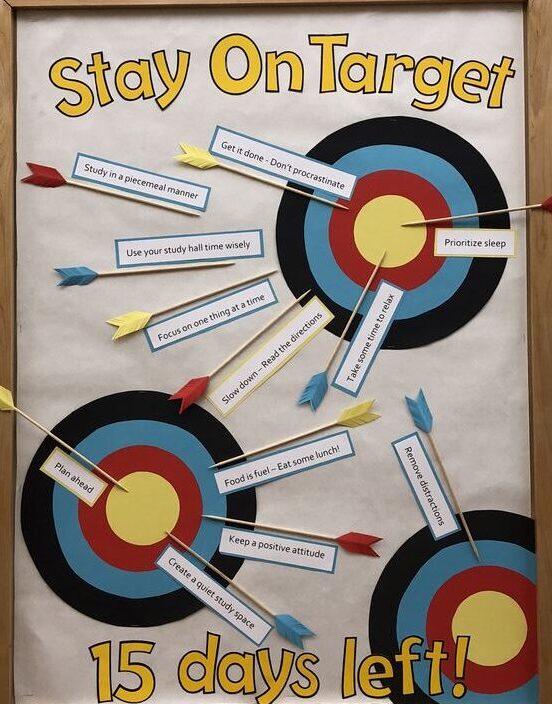Setting specific, achievable goals for each study session helps keep you motivated and focused. Whether it’s mastering a particular topic or completing a set number of practice questions, having clear objectives can guide your efforts and improve your productivity. Here’s how to set and achieve your study goals effectively.
How to Set SMART Goals
1. Specific
- Focus on a Particular Topic or Task: Be clear about what you want to achieve. A specific goal might be, “Learn the causes of World War II” rather than just “Study history.”
2. Measurable
- Define How You Will Measure Success: Ensure your goals can be counted. For example, “Complete 20 practice questions on algebra” gives you a clear way to see how you’re doing.
3. Achievable
- Ensure the Goal is Realistic: Your goals should be attainable within the given time frame. Instead of setting an overly ambitious goal like “Finish the entire textbook in one day,” aim for something more realistic, such as “Read and summarize one chapter of the history textbook.”
4. Relevant
- Align the Goal with Your Overall Study Plan: Make sure your goals match your bigger plans. For example, saying “Prepare for the upcoming history exam”. For instance, “Prepare for the upcoming history exam” is a relevant goal as it helps you perform well in a subject
5. Time-bound
- Set a Deadline: Having a time frame helps you stay on track. A time-bound goal could be, “Finish by the end of the week,” ensuring you pace yourself appropriately.
Tips for Setting and Achieving Your Goals
1. Break Down Larger Goals
- Manageable Steps: Divide larger goals into smaller, more manageable tasks. This makes it easier to tackle and prevents feeling overwhelmed.
2. Write Down Your Goals
- Commitment: Writing down your goals makes them more tangible and serves as a constant reminder of what you need to achieve.
3. Review and Adjust Regularly
- Stay Flexible: Regularly review your goals to track your progress and make adjustments as needed. This keeps you on track and motivated.
4. Celebrate Achievements
- Reward Yourself: Celebrate when you achieve your goals, no matter how small. This can boost your motivation and reinforce positive study habits.
Sample SMART Goals
| Goal Type | Example |
|---|---|
| Specific | Learn the causes of World War II |
| Measurable | Complete 20 practice questions on algebra |
| Achievable | Read and summarize one chapter of the history textbook |
| Relevant | Prepare for the upcoming history exam |
| Time-bound | Finish by the end of the week |
Setting clear goals using the SMART criteria can transform your study sessions into productive and focused periods of learning. By knowing exactly what you want to achieve and how to get there, you can make the most of your study time and stay motivated throughout your academic journey.



